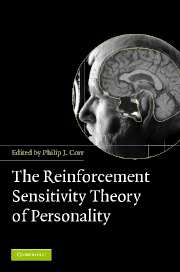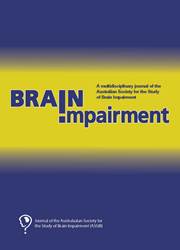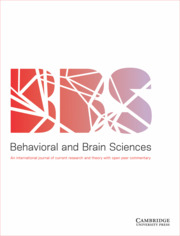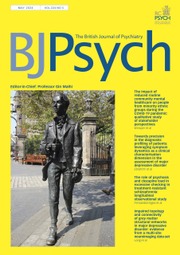The Reinforcement Sensitivity Theory of Personality
£135.00
- Editor: Philip J. Corr, University of Wales, Swansea
- Date Published: April 2008
- availability: Available
- format: Hardback
- isbn: 9780521851794
£
135.00
Hardback
Other available formats:
Paperback, eBook
Looking for an inspection copy?
This title is not currently available on inspection
-
One of the major neuropsychological models of personality, developed by world-renowned psychologist Professor Jeffrey Gray, is based upon individual differences in reactions to punishing and rewarding stimuli. This biological theory of personality - now widely known as 'Reinforcement Sensitivity Theory' (RST) - has had a major influence on motivation, emotion and psychopathology research. In 2000, RST was substantially revised by Jeffrey Gray, together with Neil McNaughton, and this revised theory proposed three principal motivation/emotion systems: the 'Fight-Flight-Freeze System' (FFFS), the 'Behavioural Approach System' (BAS) and the 'Behavioural Inhibition System' (BIS). This is the first book to summarise the Reinforcement Sensitivity Theory of personality and bring together leading researchers in the field. It summarizes all of the pre-2000 RST research findings, explains and elaborates the implications of the 2000 theory for personality psychology and lays out the future research agenda for RST.
Read more- Features cutting-edge research on one of the most important models of personality from experts in field
- Demonstrates how basic biological systems give rise to the uniqueness of human individuality
- Contains important questions to guide future research
Reviews & endorsements
'The Reinforcement Sensitivity Theory of Personality is rooted in contemporary neurophysiology of learning and emotion. This text presents an outstanding exposition of the development, data, and direction of RST as well as an excellent critical analysis of the strengths and challenges of the research program. It is required reading for serious students and scholars of personality and individual differences.' Professor Robert M. Stelmack, School of Psychology, University of Ottawa
See more reviews'… a refreshingly polyphonic account of the field as it stands, where the authors are not afraid to question the orthodoxy. … exhaustive and exhilarating …' Journal of ISSID
Customer reviews
Not yet reviewed
Be the first to review
Review was not posted due to profanity
×Product details
- Date Published: April 2008
- format: Hardback
- isbn: 9780521851794
- length: 556 pages
- dimensions: 229 x 152 x 30 mm
- weight: 1kg
- contains: 35 b/w illus. 16 tables
- availability: Available
Table of Contents
1. Reinforcement Sensitivity Theory (RST): introduction Philip J. Corr
2. The neuropsychology of fear and anxiety: a foundation for Reinforcement Sensitivity Theory Neil McNaughton and Philip J. Corr
3. Animal cognition and human personality Neil McNaughton and Philip J. Corr
4. The behavioural activation system: challenges and opportunities Alan D. Pickering and Luke D. Smillie
5. Reinforcement Sensitivity Theory and personality Philip J. Corr and Neil McNaughton
6. Reinforcement sensitivity scales Rafael Torrubia, César Ávila and Xavier Caseras
7. Performance and conditioning studies César Ávila and Rafael Torrubia
8. Psychophysiological studies Vilfredo De Pascalis
9. Reinforcement Sensitivity Theory and mood induction studies Rapson Gomez and Andrew Cooper
10. Neuro-imaging and genetics Martin Reuter
11. Reinforcement Sensitivity Theory and psychosomatic medicine Liisa Keltikangas-Järvinen
12. RST and clinical disorders: anxiety and depression Richard E. Zinbarg and K. Lira Yoon
13. RST and psychopathy: associations between psychopathy and the behavioral activation and inhibition systems John F. Wallace and Joseph P. Newman
14. Behavioural activation and inhibition in social adjustment Gennady G. Knyazev, Glenn D. Wilson and Helena R. Slobodskaya
15. Reinforcement sensitivity in the work-place: BIS/BAS in business Adrian Furnham and Chris Jackson
16. Formal and computational models of Reinforcement Sensitivity Theory Alan D. Pickering
17. Reinforcement Sensitivity Theory: a critique from cognitive science Gerald Matthews
18. The contribution of Reinforcement Sensitivity Theory to personality theory William Revelle.
Sorry, this resource is locked
Please register or sign in to request access. If you are having problems accessing these resources please email [email protected]
Register Sign in» Proceed
You are now leaving the Cambridge University Press website. Your eBook purchase and download will be completed by our partner www.ebooks.com. Please see the permission section of the www.ebooks.com catalogue page for details of the print & copy limits on our eBooks.
Continue ×Are you sure you want to delete your account?
This cannot be undone.
Thank you for your feedback which will help us improve our service.
If you requested a response, we will make sure to get back to you shortly.
×














